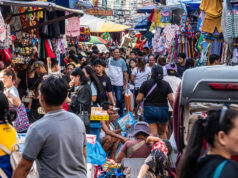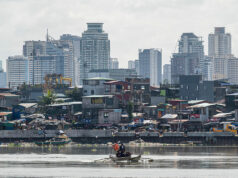It seems hardly necessary to recall the continuing relevance of the life and writings of Jose P. Rizal, whose 159th birth anniversary the country should be marking today with greater urgency.
But it has always been in order because in the age of social media, Hollywood, and Marvel superheroes, too many Filipinos either have only a limited knowledge of who he was, or worse, are unaware of his role in the making of the Filipino nation — and least of all the lessons they can draw from it.
His novels Noli Me Tangere and El Filibusterismo have been required reading in the country’s schools since the 1950s. But that has not prevented his being subjected to such mindless forms of adoration as the emphasis on his many loves and the telling and retelling of anecdotes about his childhood that even then supposedly prove his greatness.
Born on June 19, 1861, Jose Protacio Rizal Mercado y Alonso Realonda seemed an unlikely hero because of his family background, his talents and his intellectual capacity. A scion of a relatively well-off middle class Calamba, Laguna family, from his hometown he established himself in Manila to study at Ateneo de Manila and the University of Santo Tomas. He learned several languages, and later earned degrees in philosophy and medicine from Spanish, French, and German universities. He later completed the eye specialization program of Heidelberg University in Germany and became the ophthalmologist he wanted to be.
He was neither a Spaniard nor a Spanish mestizo. But while it was not likely to be especially bright, his future seemed fairly secure even in Spanish colonial Philippines, if only he had kept silent, and did not use his writing skills to describe to his countrymen and the rest of the world what was happening in his native land. He did not succumb to what the Greek novelist Nikos Kazantzakis described in his The Last Temptation of Christ as the most powerful lure of all to which even exceptional individuals are subject: that of conformity and becoming like everyone else. He took the road less traveled of social and political engagement rather than living a “normal” life of silent complicity with the powerful who were responsible for the suffering of his countrymen.
Like any man of intelligence and heart, he could not abide the injustice and the misery that he saw around him. A child of the Enlightenment (an ilustrado), and driven by outrage and a sense of justice, he described in his essays and novels how an unjust order founded on hypocrisy, deceit, and brutality was destroying lives daily, and, because of the color of their skin, was condemning an entire people to perpetual want. Although basically a reformist, for telling the truth in his writings he was executed by musketry on Dec. 30, 1896 on charges of sedition and conspiring to overthrow the Spanish colonial regime.
Because whether or not he approved of and was supportive of the Revolution that Andres Bonifacio’s Katipunan launched is at least uncertain, and his designation as national hero the doing of the US colonial regime that replaced that of Spain, the late nationalist historian Renato Constantino and other Bonifacio partisans have raised doubts about whether he was, indeed, an authentic hero. But revolutions are waged not only in the battlefield but also in the mind. To change the world it must be explained, interpreted, and understood, and it was in that enterprise that Rizal excelled. Although he wrote in the language of the colonizer, his essays and novels helped inspire the Bonifacios and the Jacintos and countless others to take up arms against Spanish rule.
The link between knowledge, understanding, and change helps explain why, as the peoples of the world are seeing now, every tyranny has persecuted, terrorized, imprisoned and even murdered truth-tellers and tried to control the flow and quality of information. In today’s world, in which the media have never been as extensive in their reach and power over consciousness, providing the relevant and accurate information every human being is entitled to has become the primary responsibility of journalists and those other sectors committed to the necessary task of describing and understanding the world.
Never has meeting this responsibility been as urgent as today, whether in this country or in many others. The COVID-19 pandemic alone has made the dissemination of information not only crucial to the well-being and health of millions but even a matter of life or death.
The United States, the country with the most number of novel coronavirus infections at nearly two million and with over 100,000 dead, has achieved that sorry distinction through the disinformation that at least partly emanated from its current President.
Donald Trump belittled the threat of the pandemic, and thus helped spread such other falsehoods as that it was no worse than the flu, and that neither social distancing nor face masks are necessary in preventing the transmission of the disease. Despite the efforts of the media, epidemiologists and other experts to provide the information that can save lives, many Americans are going to the beaches without protection, and holding protests demanding the reopening of restaurants, night clubs and other public places.
Information has better served Americans on the perennial issue of racism, which has become the concern of millions because of the brutal police killing of George Floyd, an unarmed black man police said was passing counterfeit bills.
Thanks to the media, human rights, lawyers’ and civic groups as well as individual white and colored people, even corporations and Donald Trump’s own officials and Republican allies, have protested the killing and urged the adoption of reforms to stop police violence against African Americans in the United States despite Trump’s defending and virtually justifying what the police did. The likelihood is that the Floyd killing will be a crucial issue in the reelection of Trump this November as his approval ratings continue to slide and support for his possible rival Joseph Biden surges.
Here in the Philippines, the vast outpouring of protests against the so-called Anti-Terrorism Bill from journalists’ and media advocacy groups, students and academics, lawyers and human rights defenders, other professionals, and farmers and workers has focused attention to the imperative of resisting the passage of the bill as well those other oppressive laws similarly violative of the Constitutional rights to due process, free expression and press freedom.
The protests have made information about them in print, broadcast, and online media available to thousands of citizens who were earlier uninformed about, or indifferent to it, thanks to those men and women who are risking arrest and even putting their lives on the line in the defense of citizen rights and the making of a better Philippines.
On this day, June 19, as well as last Independence Day, these groups and individuals are demonstrating once again that heroism takes many forms, and that, just like Rizal, rather than be silent and complicit with the ongoing assault on fundamental freedoms, they too have chosen to take the less travelled path of political and social engagement that this country urgently needs from its citizens. Front liners in combating tyranny, oppression and injustice, they are heroes all.
Luis V. Teodoro is on Facebook and Twitter (@luisteodoro).



